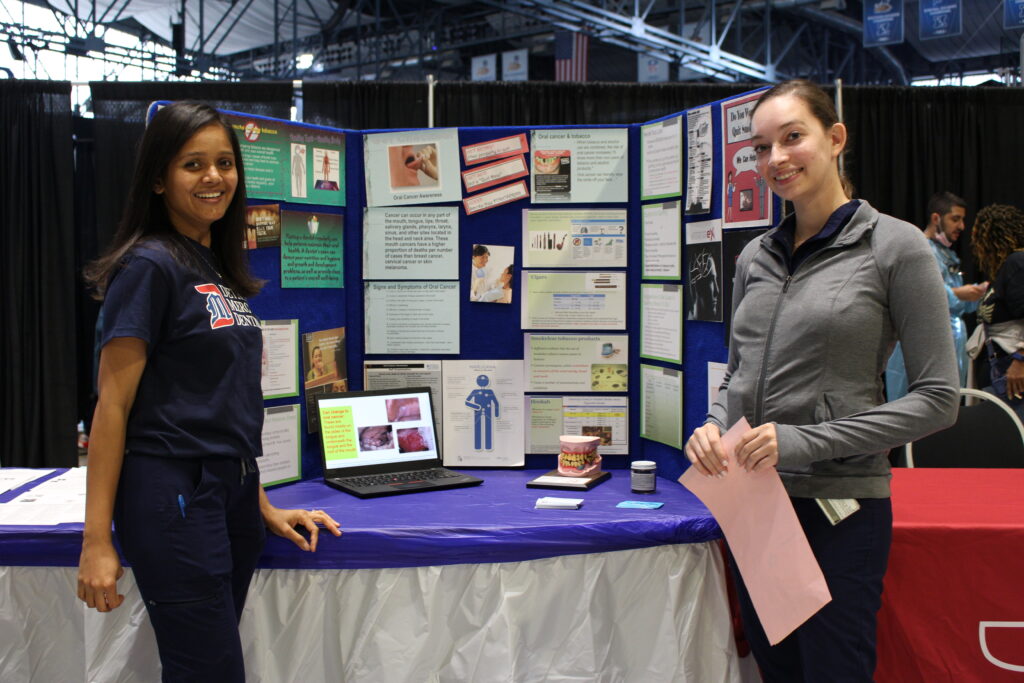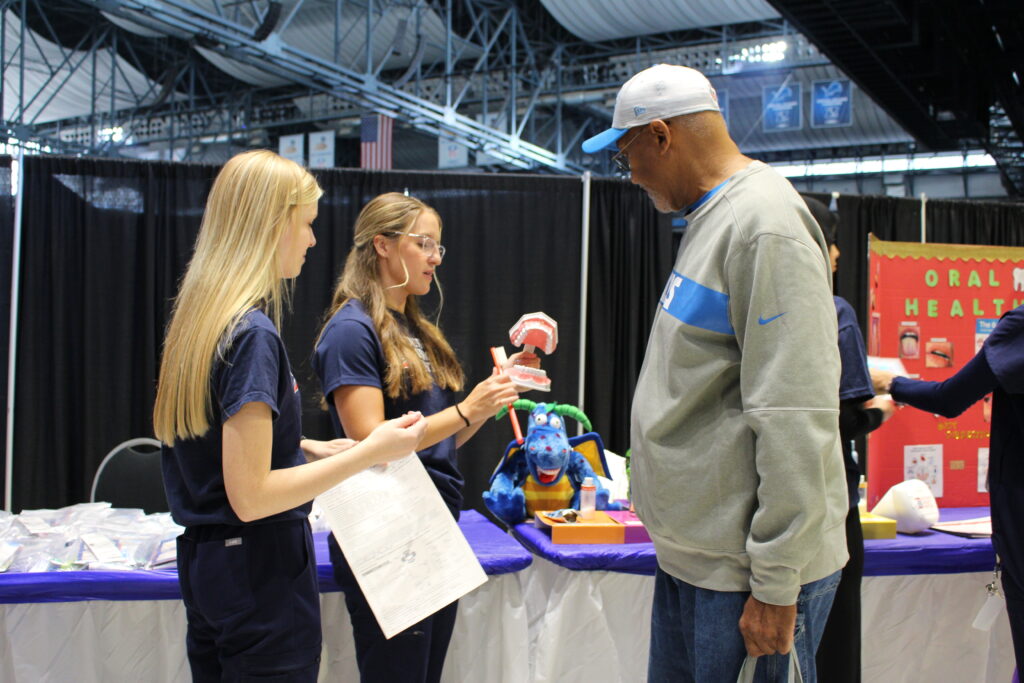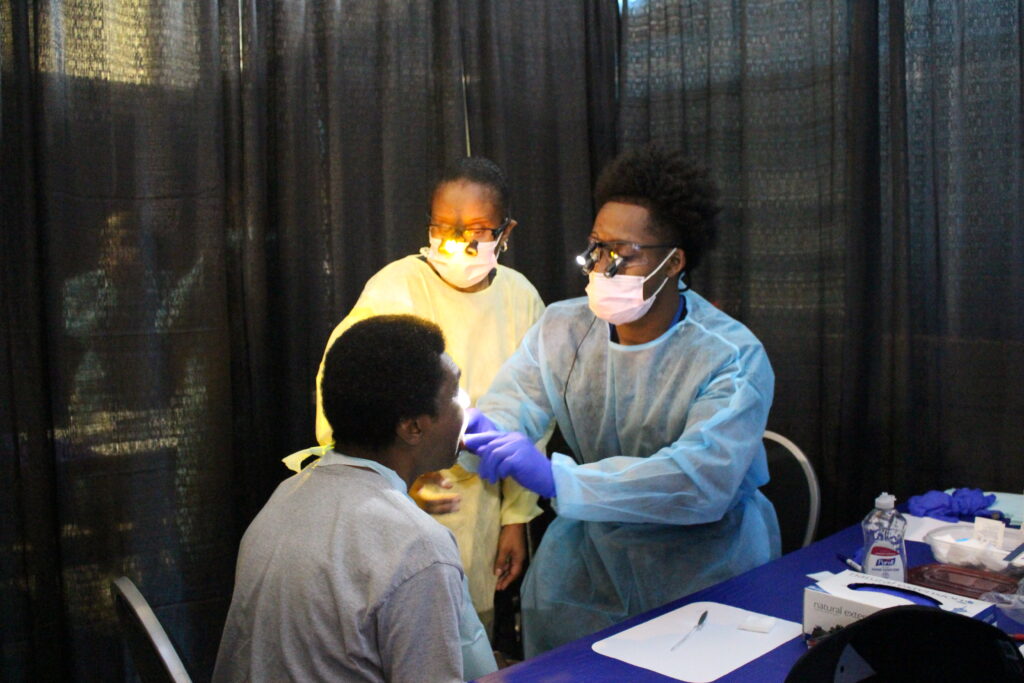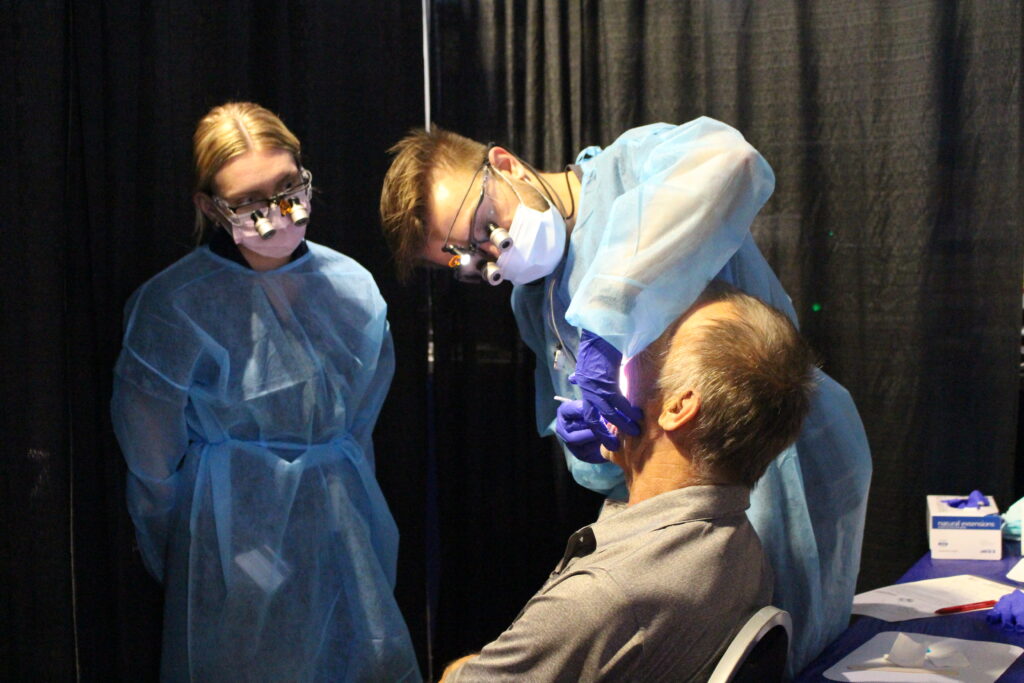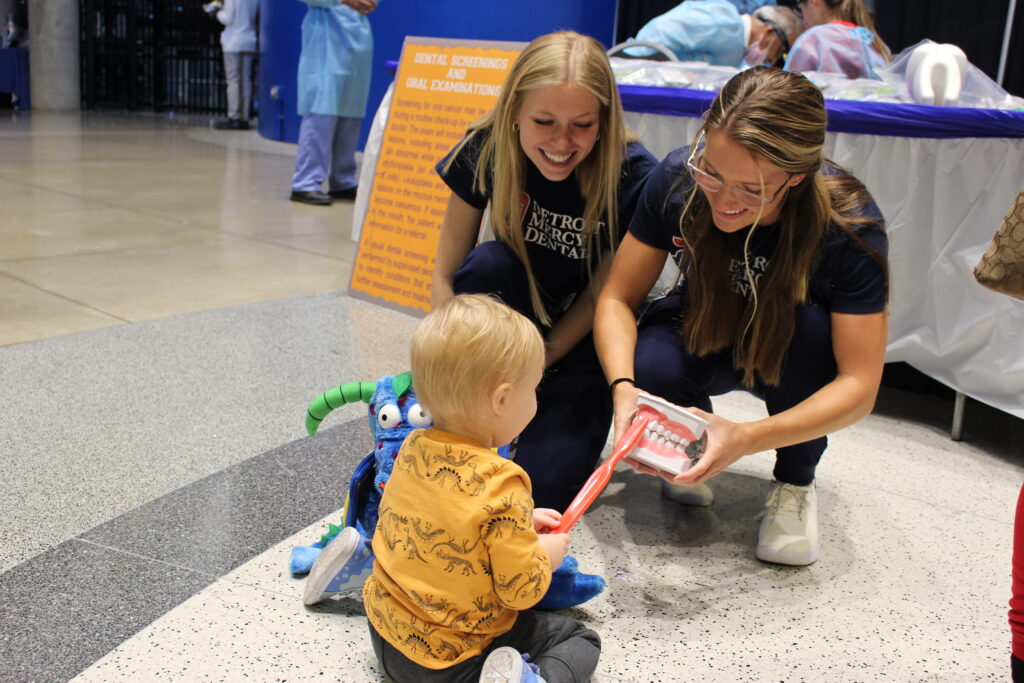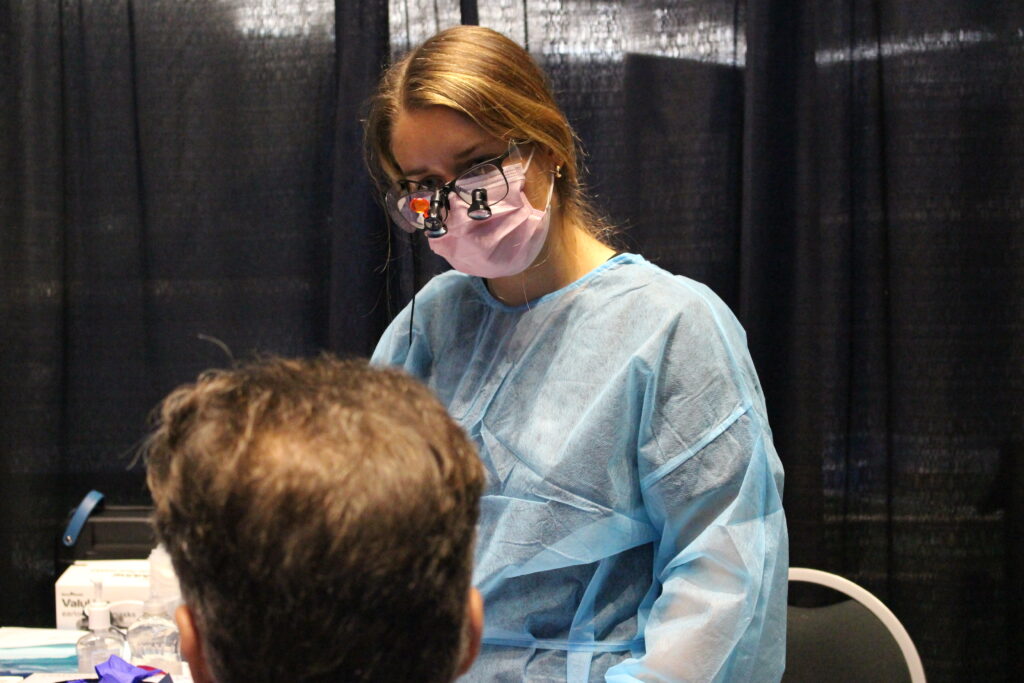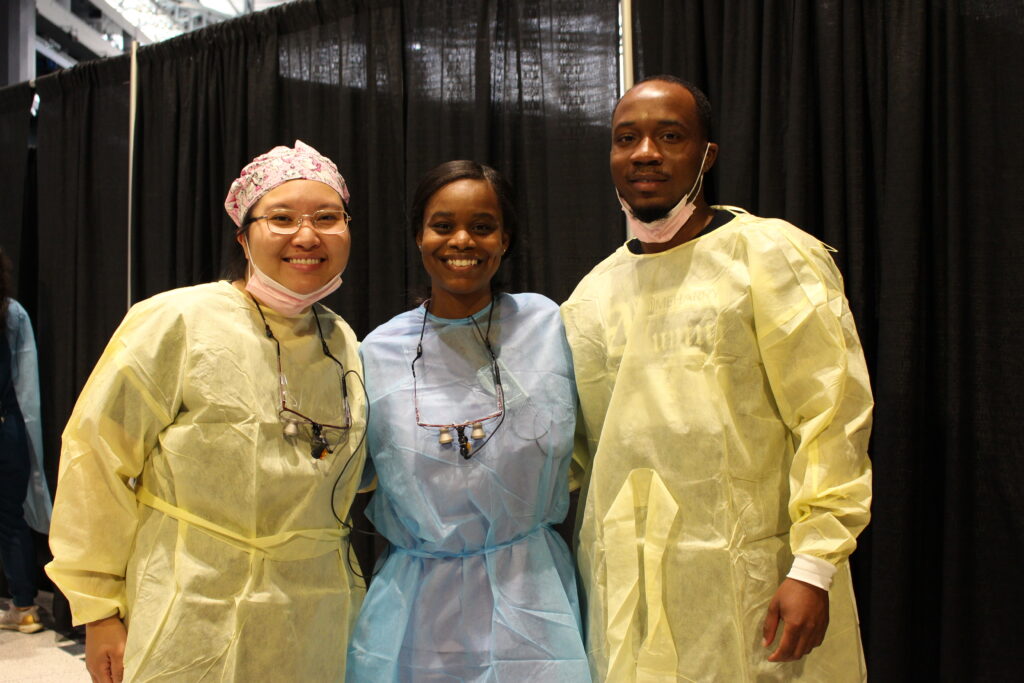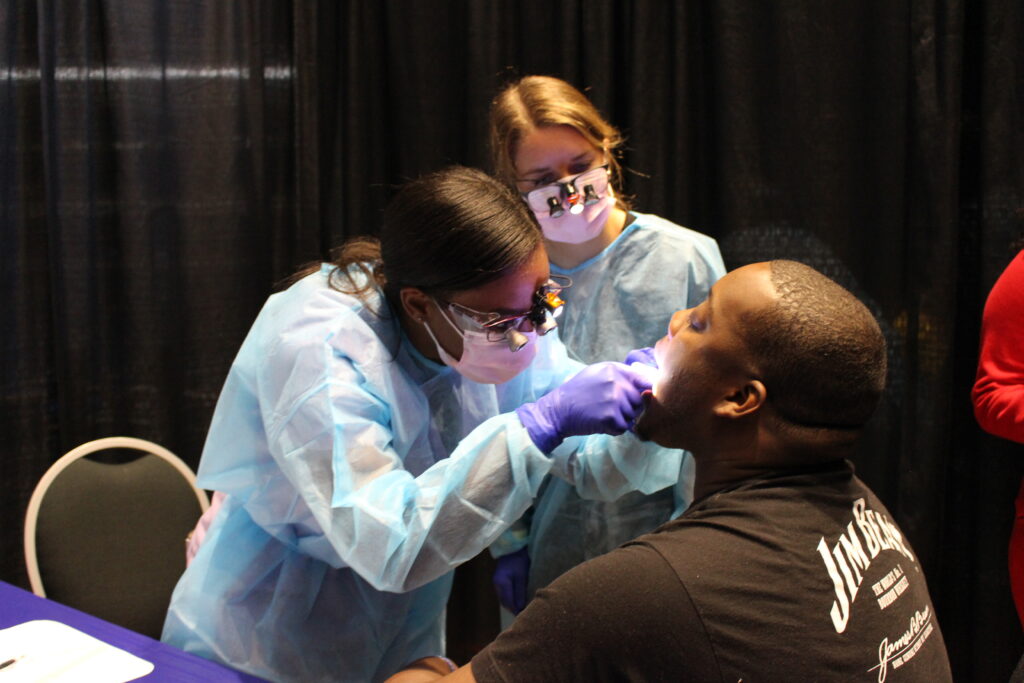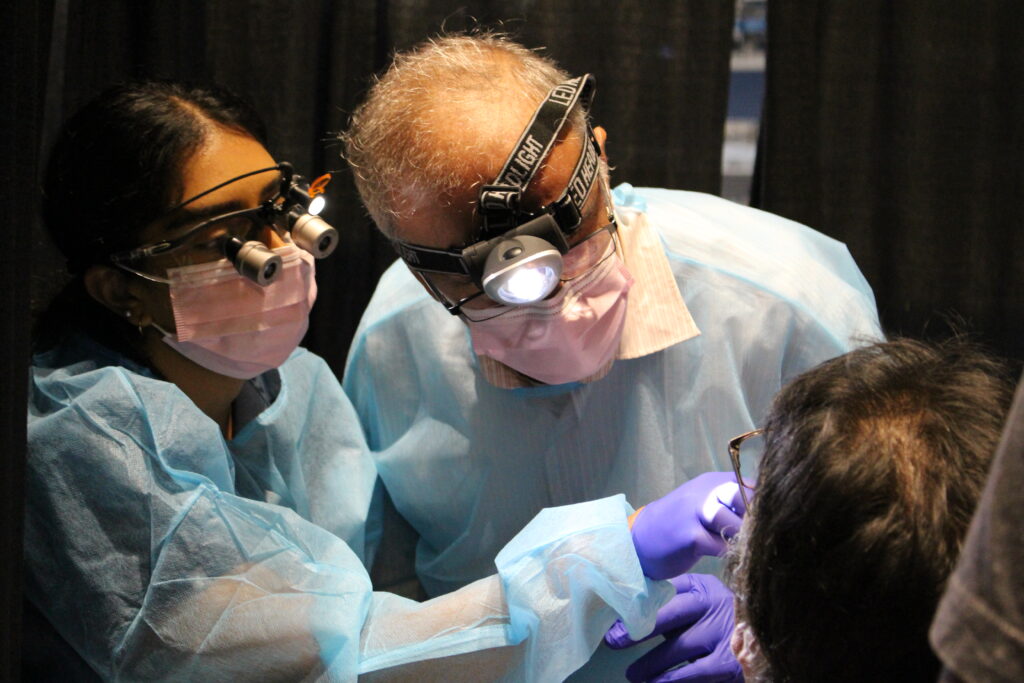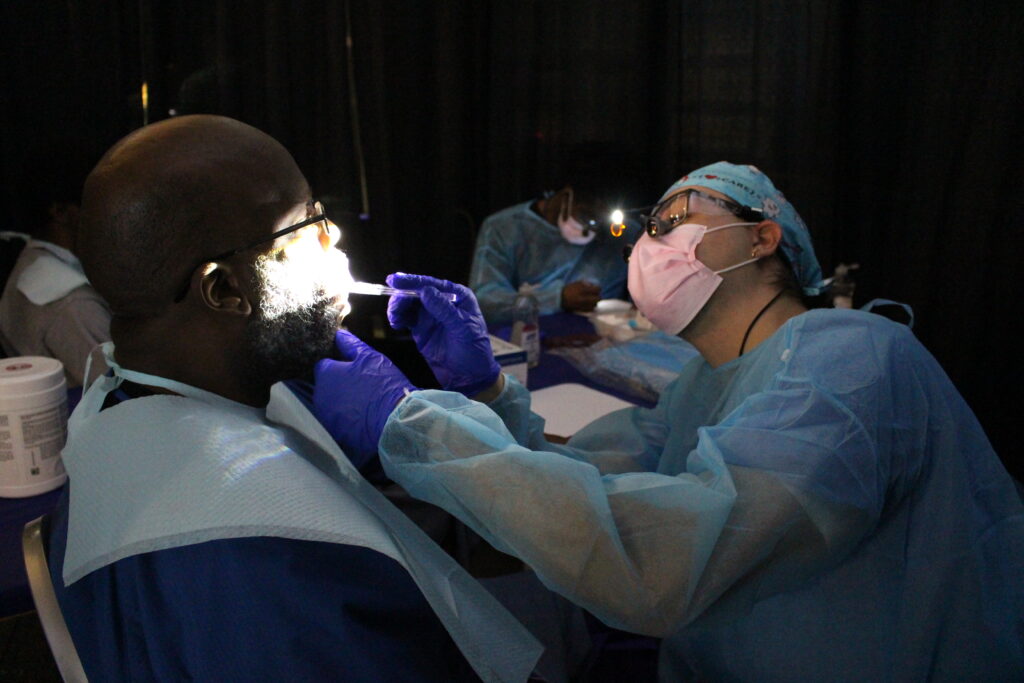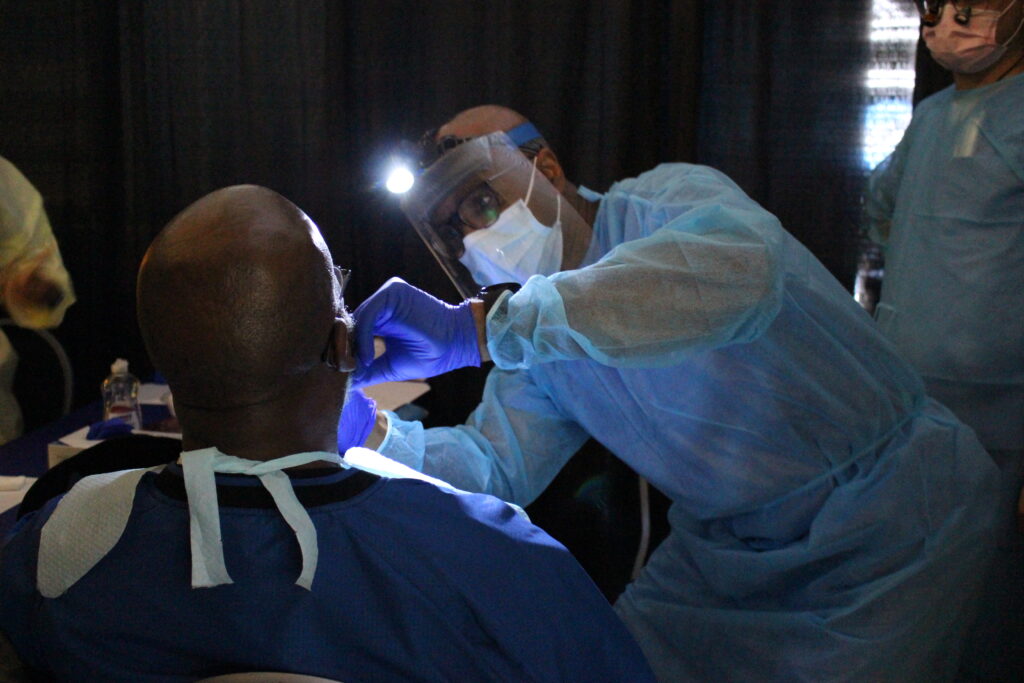
Since 2009, the School of Dentistry has partnered with the MIU-Men’s Health Foundation to perform oral cancer screenings for attendees at their annual event at Ford Field. On Sept. 30, over 60 student volunteers provided oral health instruction, tobacco cessation information, and oral cancer screenings to attendees. Screenings were overseen by 26 faculty and residents. Of the patients screened, 29 were referred for dental treatment.
The Crucial Role of Regular Oral Health Care and Screenings
The continued relationship with the School of Dentistry and the MIU-Men’s Health Foundation underscores the pivotal role of regular oral health care and screenings in maintaining overall health. It’s not just about ensuring a bright smile; it’s a matter of life and death in some cases. Here’s why.
Oral cancer is one of the most dangerous forms of cancer, primarily because it is often diagnosed too late. According to the National Institute of Health (NIH), the five-year survival rate for oral cancer patients is only 68%. This stark statistic highlights the importance of regular dental visits or screenings, which can catch potential issues early and increase the chances of successful treatment and survival.
According to the National Institute of Health (NIH), the five-year survival rate for oral cancer patients is only 68%.
NIH: https://www.nidcr.nih.gov/research/data-statistics/oral-cancer/survival-rates
Beyond cancer, poor oral health can lead to numerous other health complications. Gum disease, for instance, has been linked to heart disease, diabetes, and stroke. Regular check-ups and cleanings can help prevent or manage these conditions if they’re already present.
Moreover, oral health is closely tied to mental health and self-esteem. Conditions like tooth decay, gum disease, or oral cancer can significantly impact a person’s confidence and quality of life. Regular dental care, including professional cleanings and check-ups, can help individuals maintain their smiles and confidence.
The initiative at Ford Field also highlighted another essential aspect of oral health: education. Dental hygiene student volunteers provided attendees with vital information about oral health care and tobacco cessation. Education is key in prevention, as understanding the risks associated with poor oral hygiene and tobacco use can motivate individuals to take better care of their oral health.
The importance of regular oral health care and screenings cannot be overstated.
Call Detroit Mercy Dental at 313-494-6700 to schedule your next exam!
